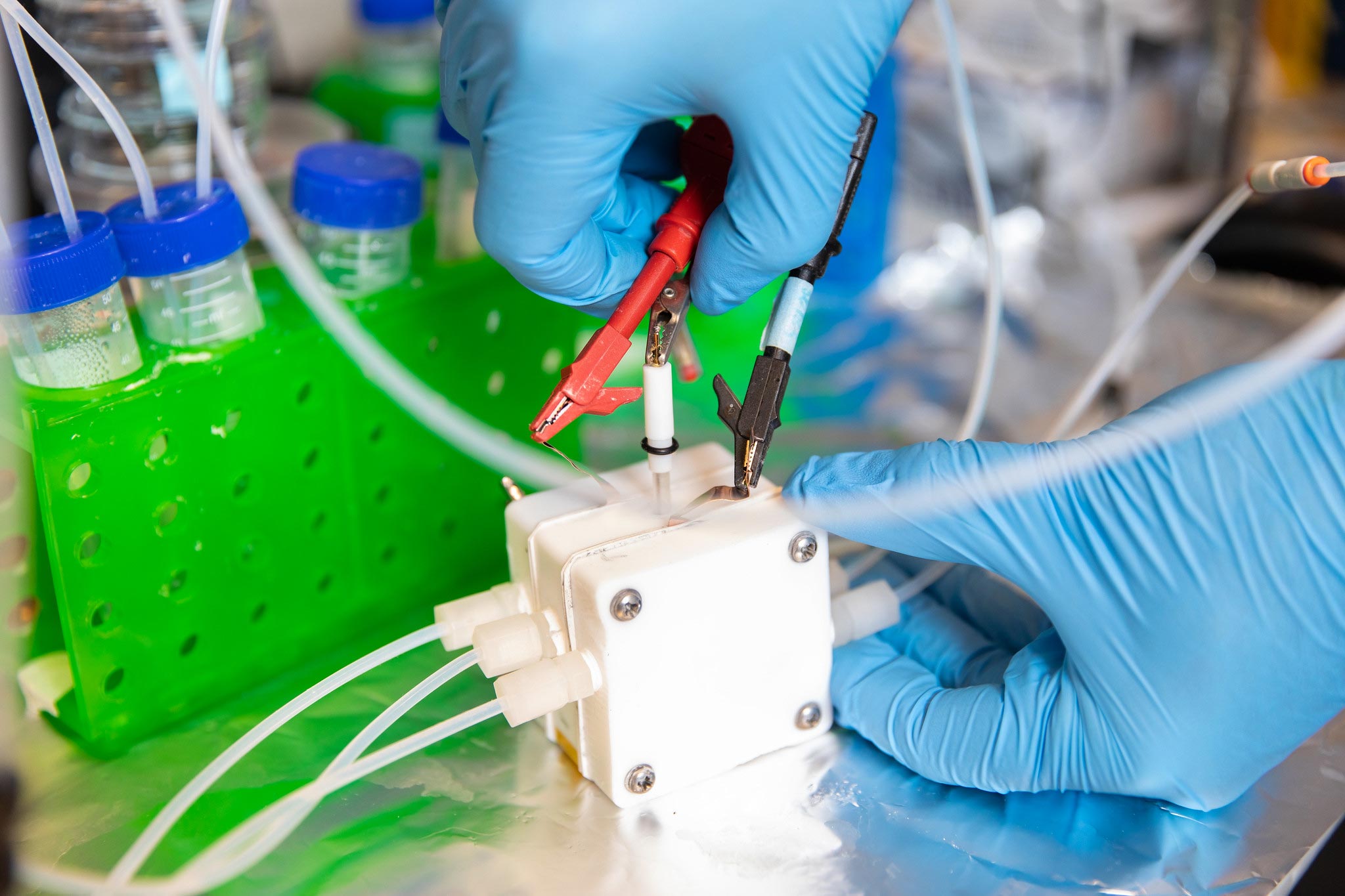
Researchers from U of T Engineering and Carnegie Mellon University are using electrolyzers like this one to convert waste CO2 into commercially valuable chemicals.
Credit: Daria Perevezentsev / University of Toronto Engineering.
Researchers at University of Toronto Engineering and Carnegie Mellon University are using artificial intelligence (AI) to accelerate progress in transforming waste carbon into a commercially valuable product with record efficiency.
They leveraged AI to speed up the search for the key material in a new catalyst that converts carbon dioxide (CO2) into ethylene — a chemical precursor to a wide range of products, from plastics to dish detergent.
The new catalyst is an alloy of copper and aluminium with a unique nanoscale porous structure.
Credit: Alexander Ip / University of Toronto Engineering.
Professor Zachary Ulissi of Carnegie Mellon University was one of the invited researchers at the original workshop.
“With other chemical reactions, we have large and well-established datasets listing the potential catalyst materials and their properties,” says Ulissi.
The algorithms created by Ulissi and his team use a combination of machine learning models and active learning strategies to broadly predict what kinds of products a given catalyst is likely to produce, even without detailed modeling of the material itself.
In the new paper, the co-authors describe their best-performing catalyst material, an alloy of copper and aluminum.
The new catalyst was then tested in a device called an electrolyzer, where the “faradaic efficiency” — the proportion of electrical current that goes into making the desired product — was measured at 80%, a new record for this reaction.
The new catalyst is the first one for CO2-to-ethylene conversion to have been designed in part through the use of AI!
May 20, 2020
May 20, 2020
May 20, 2020